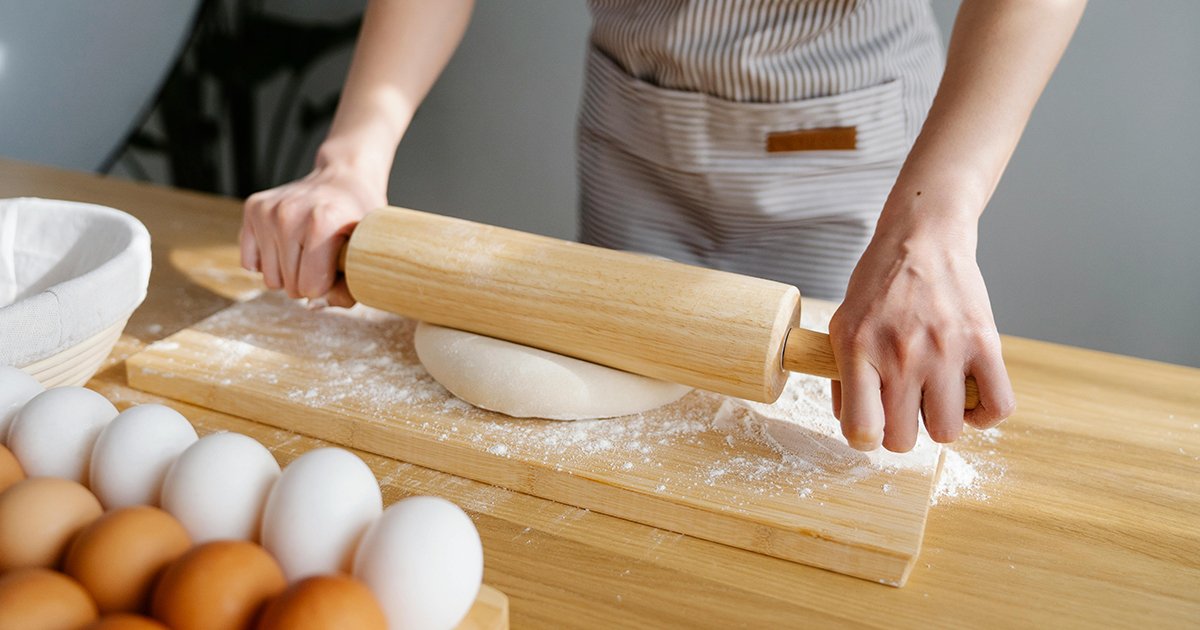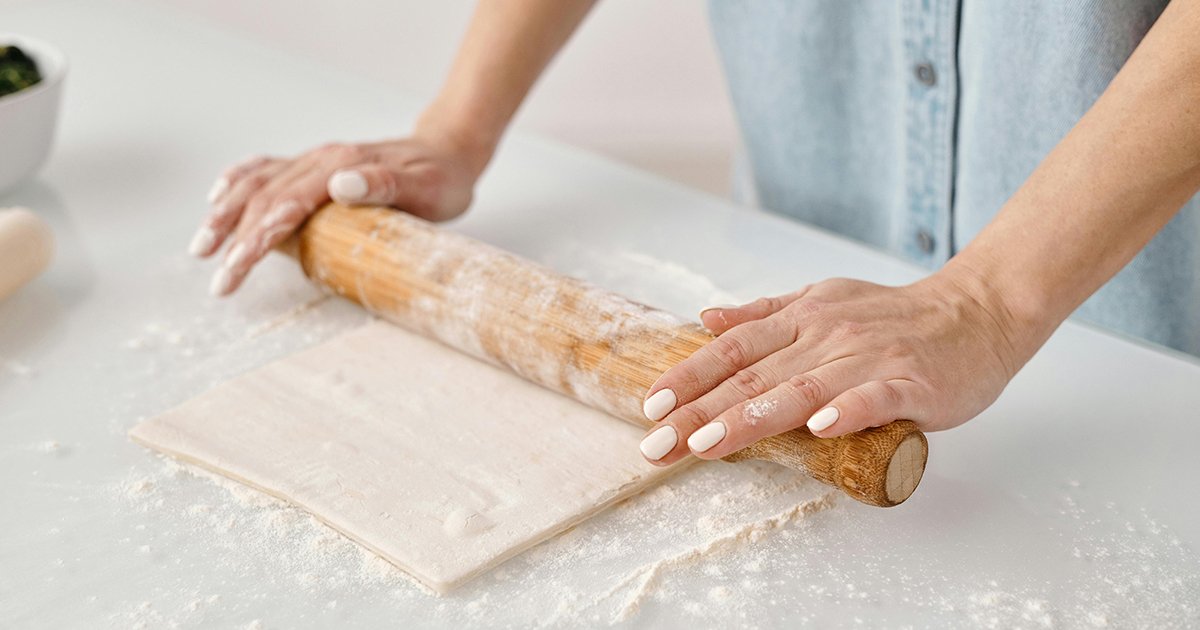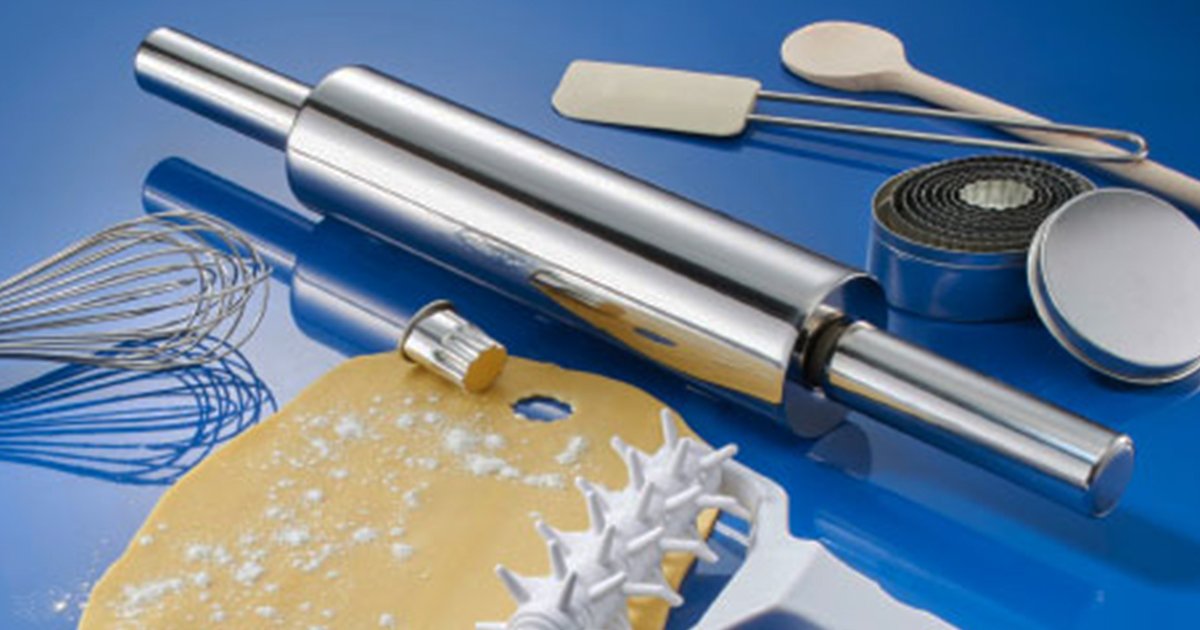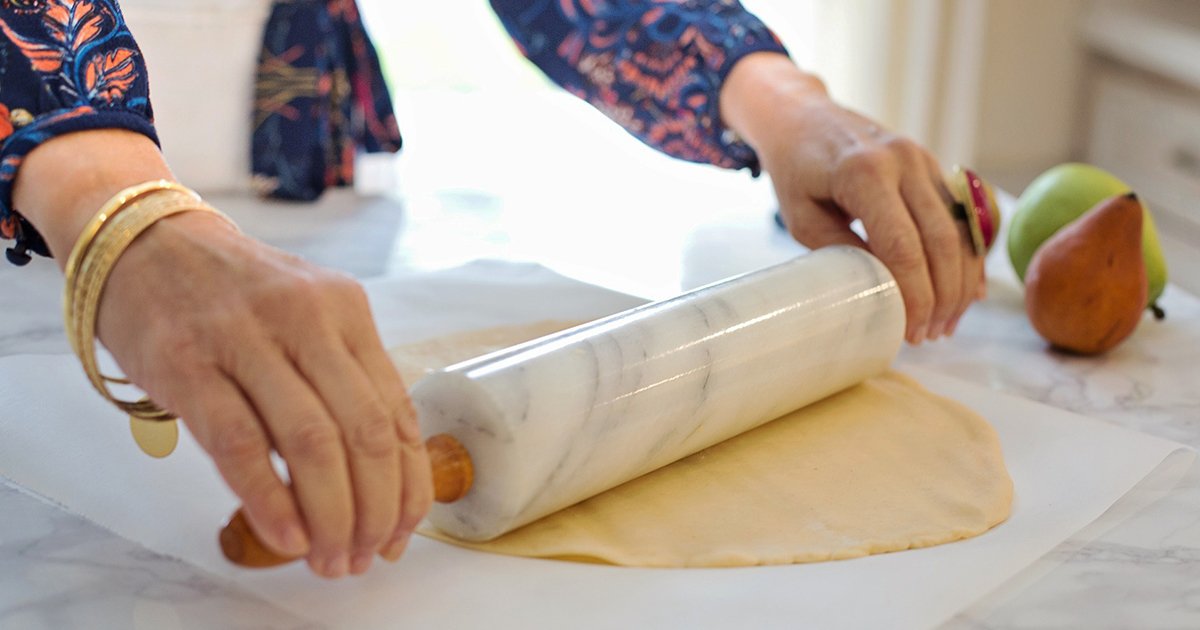Rolling pins are essential tools in any kitchen, which help in the creation of various baked goods. With so many options available, choosing the right rolling pin can be difficult. In this guide, we’ll explore these key factors to ensure smooth and easy baking experiences, when choosing the best kitchen rolling pin for your needs.
Understanding the Different Types of Rolling Pin
Rolling pins come in a variety of materials, each offering their own unique advantages.

Wooden Rolling Pins: Traditional wooden rolling pins are known for their classic appeal and sturdy construction. Made from hardwoods like maple or beech, these pins provide a reliable surface for rolling dough. They absorb the dough as you work, prevent sticking and ensure smooth rolling.
Marble Rolling Pin: They are prized for their naturally cool surface, which helps prevent dough from sticking. They are ideal for working with delicate pastry dough, providing a smooth and even surface for easy rolling.
Stainless Steel Rolling Pin: Stainless steel roller kitchen pins are durable and easy to clean, making them a favorite among professional bakers. They offer a sleek and modern look and are resistant to rust and corrosion, ensuring longevity.
Silicone Rolling Pin: They are a new addition to the market but have quickly gained popularity. Their non-stick surface makes the rolling process easy and cleanup a breeze. They are also dishwasher safe, which increase their convenience.
Consider Size and Weight of Rolling Pin
When choosing a dough roller pin, size and weight are important factors to consider.
Length: They can vary in length, from short pins for compact kitchens to long ones for ample workspace. Longer pins provide more surface area for rolling the dough, while shorter pins are easier to maneuver.
Weight: The weight of the kneading dough pin may affect its use. Heavier pins apply more pressure, making them ideal for flattening tough dough. The lightness is easy to handle; moreover, it’s ideal for delicate tasks.
Choose Your Favourite Design
They are available in different designs to suit different baking preferences.
Traditional Rolling Pin: This feature handles at both ends, providing stability and control during use. They are versatile and suitable for a wide range of baking tasks.
French Rolling Pin: They lack handles and have a smooth, tapered surface. They offer greater precision and finesse, making them ideal for tasks such as pie crusts or rolling out puff pastry.

Durability and Maintenance of Rolling Pin
Durability is an important factor to consider when investing in a rolling dough pin.
Wooden Rolling Pins: Wooden rolling dough pins require regular maintenance to prevent cracking and warping. They must be oiled and cleaned regularly to maintain their integrity and extend their lifespan.
Marble and Stainless Steel Rolling Pin: Marble and stainless steel roller pins are more durable and resistant to cracking. They require minimal maintenance and are easy to clean, making them suitable for frequent use.
Silicone Rolling Pin: Silicone rolling pins are exceptionally durable and easy to clean. They are stain and odor resistant; moreover, they are dishwasher safe for added convenience.
Comfort is the Key
Look for kitchen dough pins with ergonomic designs and comfortable handles that fit comfortably in your hand. Comfort plays an important role in using a dough kneading pin, especially during extended baking sessions. Features like contoured grips or cushioned handles can increase comfort and reduce hand fatigue, allowing for smoother and more convenient rolling.
Additional and Extra Features to Consider
Some roller pins come with additional features that can enhance your baking experience.
Measurement Marks: Some dough roller pins have measuring marks etched into the surface, allowing for accurate dough thickness. This ensures that consistent results are achieved every time.
Removable Rings: Others may include removable rings that slide over the ends of pins, ensuring a consistent thickness when rolling out dough for even baking results.

Read Reviews and Find Recommendations
Before making a final decision, it’s important to gather insights from reviews and recommendations from fellow bakers.
Online Forums and Baking Communities: Hearing about others’ experiences with specific rolling dough pins can provide valuable information about their performance, durability, and overall satisfaction. Online forums and baking communities are great resources for seeking advice and discovering top-rated products that fit your needs.
Conclusion
Finally, choosing the best kitchen rolling pin requires consideration of various factors, including materials, size, weight, design, durability, comfort and additional features. By understanding your baking habits and preferences, you can choose a dough roller pin that meets your needs and maximizes your cooking efforts. Whether you choose a traditional wooden kitchen pin, a sleek stainless steel model, or a versatile silicone option, the right roller pin will serve as an indispensable tool in your kitchen arsenal, giving you precision and ease. So, take your time, explore your options, and proceed with confidence as you embark on your baking adventure.
